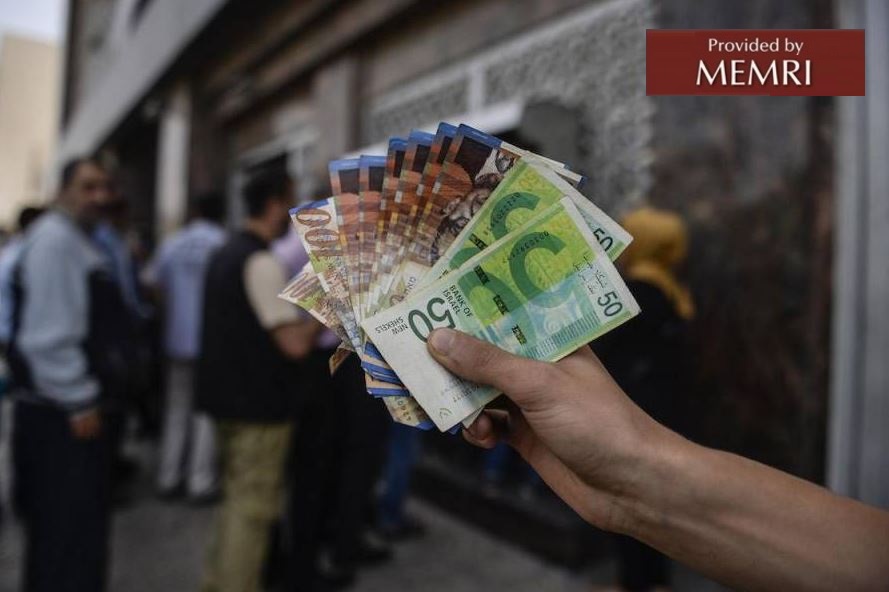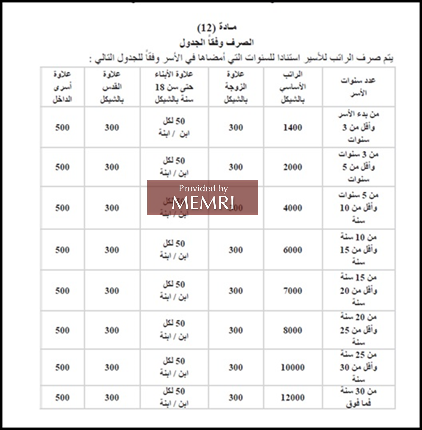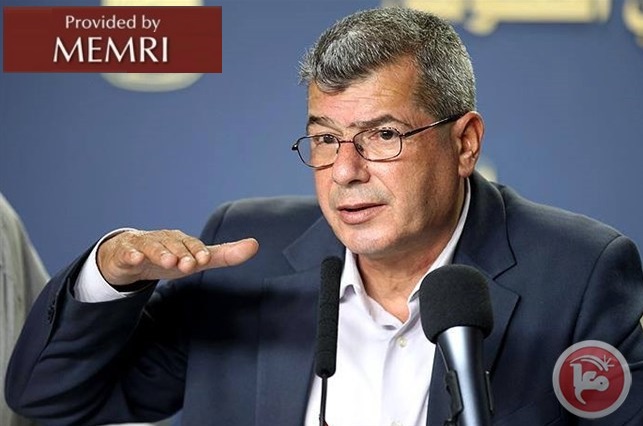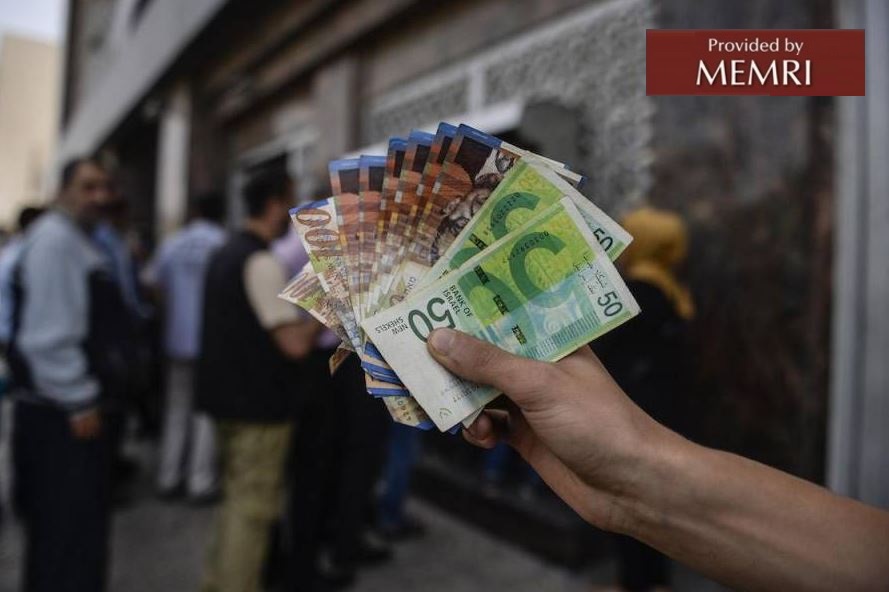Autorzy: Y. Yehoshua i C. Jacob*
Od czasu swojego powstania Autonomia Palestyńska (AP) płaciła świadczenia dla palestyńskich więźniów bezpieczeństwa w więzieniach izraelskich, zarówno już po odsiedzeniu kary, jak obecnie karę odsiadujących, jak również dla rannych i rodzin „męczenników”, także tych, którzy przeprowadzili ataki na Izraelczyków. Ostatnio wywierane są naciski na AP, by zaprzestała tych wypłat. Według doniesień, podczas wizyty prezydenta AP, Mahmouda Abbasa, 3 maja 2017 r. w Białym Domu administracja Trumpa zażądała, by AP przestała wypłacać te świadczenia. Również sekretarz stanu USA, Rex Tillerson, potwierdził ostatnio, że kwestię wstrzymania wypłat omawiał z Abbasem prezydent Trump. 13 czerwca 2017 r. Tillerson powiedział senackiej Komisji Spraw Zagranicznych, że podczas jego wizyty w Betlejem 23 maja 2017 r. AP obiecała mu, że zarówno ona sama, jak OWP „zmieniły politykę… i ich zamiarem jest przestanie wypłat dla członków rodzin tych, którzy popełnili morderstwo lub przemoc przeciwko innym… Postawiliśmy sprawę bardzo jasno, że to po prostu jest dla nas nie do zaakceptowania”[1].
Także Izrael od pewnego czasu wzywa AP do zaprzestania wypłaty świadczeń dla więźniów i rodzin męczenników, argumentując, że zachęca to do kontynuowania terroryzmu. Ostatnio Kneset izraelski dyskutował ustawę o dedukcji sumy świadczeń dla więźniów i rodzin męczenników z przychodów podatkowych, jakie Izrael zbiera i co miesiąc przekazuje AP.
Wezwaniom do wstrzymania wypłat świadczeń dla byłych i obecnych więźniów sprzeciwiają się funkcjonariusze AP i OWP, którzy oświadczyli, że nie zostaną one wstrzymane i że wsparcie dla rannych i rodzin męczenników jest „jasnym obowiązkiem narodowym, którego nie można się sprzeniewierzyć”. Szef Palestyńskiej Komisji ds. Zatrzymanych i Byłych Zatrzymanych, Issa Karake, powiedział, że świadczenia dla więźniów, rannych i rodzin męczenników są „czerwoną linią i fundamentalną zasadą, w sprawie której nie będzie żadnych kompromisów”. Karake krytykował także administrację USA, mówiąc, że ich wypowiedzi w sprawie świadczeń stanowiły „agresję amerykańsko-izraelską wobec narodu palestyńskiego i AP”. Ponadto, „wysokie źródła palestyńskie” powiedziały gazecie „Al-Quds”, że wypowiedź Tillersona była nieścisła.
Jak dotąd AP nie podjęła żadnej oficjalnej decyzji w sprawie zatrzymania wypłat świadczeń. Niemniej, wypłaty dla 277 byłych więźniów, większość z nich z Hamasu, zostały ostatnio wstrzymane – ale to miało na celu nacisk na Hamas jako część poważnych napięć wewnątrz palestyńskich.
Niniejsze opracowanie stanowi przegląd reakcji AP i OWP na wezwania do wstrzymania wypłat świadczeń dla więźniów palestyńskich byłych i obecnych, rannych i rodzin męczenników. [Opracowanie nie jest spolszczone]

Image: ramallah.news
PA Support For Prisoners Past And Present In Accordance With Laws And Government Decisions: Monthly Allowance And Benefits
The allowances paid by the PA to incarcerated and released prisoners and to the families of „martyrs” were described in detail by MEMRI president Yigal Carmon in a July 6, 2016 testimony to the U.S. Congress (See MEMRI Daily Brief No. 97, MEMRI President Yigal Carmon’s Testimony To House Committee On Foreign Affairs, July 6, 2016: Palestinian Authority Support For Imprisoned, Released, And Wounded Terrorists And Families Of 'Martyrs,’ July 6, 2016).
The support for the prisoners is mainly anchored in two laws from 2004, Law No. 14 and Law No. 19, and in a 2013 amendment to the latter law. Law No. 14 defines the prisoners and released prisoners as „a fighting sector and an integral part of the fabric of the Arab Palestinian society” (Article 2) and declares the need to „grant the financial rights of the prisoner and his family” (Article 4). It also stipulates that the PA shall „grant every incarcerated prisoner a monthly allowance, without discrimination” (Article 6).
The laws and amendment stipulate that the PA must provide the prisoners with financial support and with education for them and their children, and that upon their release it must see to their rehabilitation and employ them in PA institutions. The laws grant the prisoners a series of benefits, including exemption from various fees for education, professional training and healthcare, as well as a monthly allowance during their incarceration, as well as a clothing allowance. The laws state further that, in case of released prisoners employed as PA civil servants, the years spent in prison are to be calculated as part of their tenure.
Over the years the PA government has taken a series of decisions for implementing these laws and setting out the amounts to be paid in monthly allowances, special grants, exemptions from healthcare, tuition and professional training fees, etc.[2]
The PA stresses the importance it ascribes to the issue of the prisoners, and 'Abbas has often reiterated that „the prisoners are the number one priority.”[3] In accordance with this commitment, the PA invests immense sums in support for the prisoners and their families.
PA Government Decision No. 23, from 2010, specified the prisoners’ monthly allowances according to length of sentence. The sums, which have not changed since then, are as follows:[4]
| Up to 3 years | NIS1,400 (=~ $400)[5] |
| 3-5 years | NIS2,000 (=~ $570) |
| 5-10 years | NIS4,000 (=~ $1,130) |
| 10-15 years | NIS6,000 (=~ $1,130) |
| 15-20 years | NIS7,000 (=~ $2,000) |
| 20-25 years | NIS 8,000 (=~ $2,230) |
| 25-30 years | NIS 10,000 (=~ $2,830) |
| 30 years and more | NIS12,000 (=~ $3,400) |
| Supplement for married prisoners | NIS300 (=~ $85) |
| Supplement for prisoners with underage children | NIS50 per child (=~ $14) |
| Supplement for prisoners from Jerusalem | NIS300 (=~ $85) |
| Supplement for prisoners who are Israeli citizens | NIS500 (=~ $140) |

Table of prisoners’ monthly allowances (source: Al-Waqai’ Al-Falastiniyya, Issue 90, March 30, 2011, p. 106)
Head Of Palestinian Commission for Detainees and Ex-Detainees Affairs: Halting Of Allowances To 277 Released Prisoners – A Political Move Against Hamas
In recent days it was reported that 277 of the prisoners released in 2011 in exchange for the Israeli soldier Gilad Shalit deal did not receive their allowances last month. This move, of stopping the allowances of these Shalit deal prisoners, most of whom belong to Hamas, is clearly motivated by internal political considerations, although at the same time it may be a response to U.S. and Israeli pressure to halt payments to prisoners.
„Against the backdrop of the intense tension between Fatah and Hamas, the withholding of payments can be a pressure tactic employed by 'Abbas against Hamas, which is now marking a decade after its takeover of Gaza. This move joins other measures 'Abbas has taken against Hamas during the present month of Ramadan, such as asking Israel to cut the supply of electricity to Gaza, for which the PA pays. The head of the Palestinian Commission for Detainees and Ex-Detainees Affairs, 'Issa Qaraqe’,[6] clarified: „Stopping the allowances of 277 prisoners is a result of problems with Hamas and of the schism [between Hamas and Fatah]. Hamas regards itself as a government and refuses to end the schism. All those whose salaries have been stopped are Hamas members from the West Bank, Gaza and the diaspora. There are thousands of Hamas prisoners, and only 277 of them did not receive their allowances last month. The prisoners selected [for this move] were those released in the Wafa Al-Ahrar deal, [namely] the Gilad Shalit deal of 2011. Nobody has told us what this is about, you can ask the government. I [only] know that the reason is a dispute with Hamas, and the government should clarify this. I asked them but received no answer.” PA Government spokesman Yousuf Al-Mahmoud said regarding this affair: „No comment. I have no information about the stopping of the allowances of the 277 prisoners. This issue was not discussed in the last government session.”[7] Hamas’s mouthpiece Al-Risalah likewise stated that the withholding of the prisoners’ allowances was „motivated by [their] political affiliation.”[8]
In response to the halting of the allowances, a spokesman of the released prisoners said at a press conference: „We call on the Palestinian leadership to revoke its decision to stop the allowances, because this harms a sector that sacrificed for the sake of the Palestinian cause. We, the Palestinian prisoners, have never been part of the Palestinian schism and have never called to continue it. We long for an end to the conflicts between Fatah and Hamas. 'Abbas and the Palestinian leadership must disassociate the issue of the allowances of prisoners from Gaza, the West Bank, Jerusalem and the diaspora from any political disputes.”[9]
It should be noted that this is not the first time the PA has used prisoners’ allowances as a political tool. In December 2015 it cut the allowances of released prisoners from several movements, including Hamas, Islamic Jihad and the Popular Front, by 40% (from NIS1,300 to NIS800) due to political tension between these movements and the PA.[10]
Head Of Palestinian Commission For Detainees And Ex-Detainees Affairs: We Will Continue Allowances To Families Of Martyrs And Prisoners
Many PA officials said that the PA would not stop its payments to the prisoners, the wounded and the families of martyrs. 'Issa Qaraqe’ promised that the PA would continue the payments, saying: „We will continue paying the families of the martyrs and prisoners and will not succumb to Israeli pressure. We will continue aiding them, for they are victims of the occupation.”[11]
Several days later, Qaraqe’ stated: „The PA allowances to the families of the prisoners, the martyrs, and the wounded have not been stopped. We will continue to defend them because they are a red line and a fundamental principle on which we will in no way compromise.” He went on to criticize U.S. administration officials, saying that „their declarations on the matter of the allowances to the prisoners constitute U.S.-Israeli aggression against the Palestinian people and the PA – a kind of new war.”[12]

’Issa Qaraqe’ (Image: maannews.com)
PLO Executive Committee Member: „The Issue Of The Allowances Is Not Subject To U.S.-Israeli Extortion”
PLO Executive Committee member Ahmad Majdalani refuted the U.S. officials’ statements about the prisoner allowances, saying: „The [Palestinian] leadership has not complied [with the demand] to stop the allowances of the prisoners, martyrs, and wounded. Even if there was [such an] American demand, that does not mean that the PA would comply with it. This issue is not subject to U.S.-Israeli extortion… Our duty to pay the allowances to the families of the martyrs, the wounded, and the prisoners is moral, national, and social, and it is a red line that no one will cross.”[13]
Sources reported that the demand to stop the payments also came up during President Trump’s special representative for negotiations Jason Greenblatt’s visit to the PA areas in recent months, but according to the sources the Palestinian leadership completely rejected the demand, explaining that „stopping the allowances could create fertile ground for [terror] operations against Israel and an atmosphere of instability, which nobody wants.”[14] Top Palestinian sources told the Al-Quds daily that the PA would not change its policy and would not stop its payments to the prisoners and the families of the martyrs, and that what Tillerson had said was incorrect. One of the sources said: „It is the Israeli lobby in the U.S., which has joined the campaign of Israeli incitement against the Palestinian leadership, the PA, and the legitimate rights of the Palestinian people, that is behind such demands, with which the Palestinian side cannot comply, and [the latter] has already reiterated that the issue of the martyrs and prisoners is a general national [principle], and this has been emphasized many times by President Mahmoud 'Abbas and the Palestinian leadership.”[15]
Palestinian National Council: Supporting The Prisoners And The Families Of Martyrs Is A National Duty
Prominent figures and institutions in the PA and the PLO also protested against Israel’s intent to deduct the allowances to the prisoners and families of martyrs from the tax funds that it collects and transfers monthly to the PA, threatening to sue Israel. 'Issa Qaraqe’ said: „The occupation authorities have no right to withhold tax revenues [owed to] the Palestinians… We will sue Israel in international courts for deducting the sum paid to the prisoners and to the martyrs’ families from the tax funds [it owes] the PA.” He added that Israel is acting to „delegitimize the Palestinian struggle and define it as terror by stealing the prisoners’ allowances under the cover of law.”[16]
In a June 12, 2017 announcement on the subject, the Palestinian National Council said: „The support and sponsorship for the hero prisoners and their families and for the families of the hero martyrs and the wounded are a clear national duty that cannot be compromised.” The PNC rejected the Knesset bill, calling it part of „the framework of a series of measures, laws, and policy aimed at harming the sanctity of the struggle of the prisoners, the martyrs, and the wounded, at negotiating over their rights, and also at pressuring the PA to stop paying the allowances to the families of the Palestinian martyrs, prisoners, and wounded.”[17]
On June 13, 2017, at its weekly session, the PA government, headed by Prime Minister Rami Hamdallah, discussed the issue, and said: „These [tax] funds belong to the Palestinians and are not charity given by Israel… Deducting [the sum of the allowances] from the [tax] funds is a piratical act by it [Israel] against the Palestinian funds.”[18]
Qadoura Fares, head of the Palestinian Prisoners’ Club stated that for years Israel had been trying to influence countries donating to the Palestinians not to transfer to the PA funds that it claims are being used for incitement and terrorism, but had failed: „Israel is trying to label the Palestinian struggle as terrorism, and to bring the prisoners and the martyrs who fought for freedom into the war on terror… The law [sic; the bill to deduct the funds from tax revenues] is aimed at harming the Palestinian laws connected to the legacy of the PLO that has met and continues to meet its responsibility towards the families of the martyrs and of the prisoners since 1966; it has never stopped doing so and never will.”[19]
PA Education Ministry: We Will Give The Palestinian Prisoners Access To Higher Education At Al-Quds Open University
Support for the prisoners also took the form of education opportunities. On June 12, 2017, PA Education Minister Sabri Saidam decided that the Palestinian prisoners will be allowed to complete degrees at Al-Quds Open University, and an agreement in this matter has been signed regarding implementing this decision for the next academic year.[20]
*Y. Yehoshua is Vice President for Research and Director of MEMRI Israel; C. Jacob is a research fellow at MEMRI.
[1] Foxnews.com, June 14, 2017.
[2] Wafa.ps, April 14, 2011.
[3] Maan (PA), July 15, 2008. See also shasha.ps, April 27, 2013, wafa.ps, April 28, 2017, MEMRI Special Dispatch
No. 6934, Praise And Support For Imprisoned Terrorists By Palestinian Authority President 'Abbas, Palestinian Authority Officials, May 21, 2017; MEMRI Special Dispatch No. 6819, Palestinian President 'Abbas Meets With Terrorists And Terrorists’ Families, March 8, 2017.
[4] Wafa.ps, April 14, 2011.
[5] Dollar sums calculated according to June 16, 2017 exchange rate.
[6]’Abbas issued a presidential order according to which the payments to prisoners would no longer be made by the PA’s Ministry of Prisoners’ Affairs. Instead, they would be disbursed by a PLO Commission for Detainees and Ex-Detainees Affairs.It should be noted that in May 2014, The aim of this administrative move was to alleviate pressure on the PA by donor countries that do not wish their money to be channeled to support terrorism. However, the offices remained the same and the official in charge remained the same under a new job title. The source of the money remains the PA, which receives them from donor countries, and the overseeing body remains none other than the PA.
On June 17, 2016, PA Prime Minister Rami Hamdallah said: “The government will continue to act to improve the allowances to the martyrs’ families as soon as possible, along with the PLO (palestinecabinet.gov.ps, June 17, 2016). See also MEMRI Daily Brief No. 97, MEMRI President Yigal Carmon’s Testimony To House Committee On Foreign Affairs, July 6, 2016: Palestinian Authority Support For Imprisoned, Released, And Wounded Terrorists And Families Of 'Martyrs,’ July 6, 2016.
[7] Al-Arabi Al-Jadid (London), June 14, 2017.
[8] Al-Risalah (Gaza), June 12, 2017.
[9] Al-Risalah (Gaza), June 12, 2017.
[10] Al-Risalah (PA), December 15, 2015.
[11] Wafa.ps, June 12, 2017.
[12] Al-Arabi Al-Jadid (London), June 14, 2017.
[13] Al-Arabi Al-Jadid (London), June 14, 2017.
[14] Al-Arabi Al-Jadid (London), June 14, 2017.
[15] Alquds.com, June 15, 2017.
[16] Wafa.ps, June 12, 2017.
[17] Wafa.ps, June 12, 2017.
[18] Alwatanvoice.com, June 13, 2017.
[19] Arab48.com, June 11, 2017.
[20] Alquds.com, June 12, 2017.
If you wish to reply, please send your email to memri@memrieurope.org.









